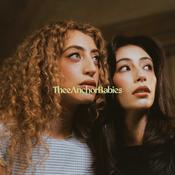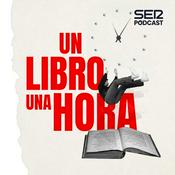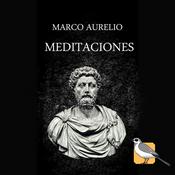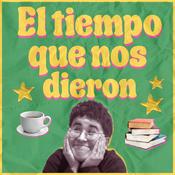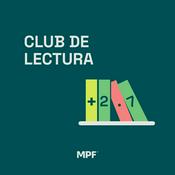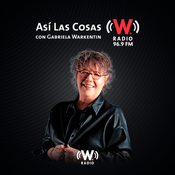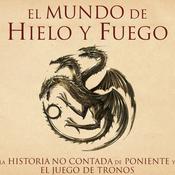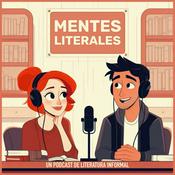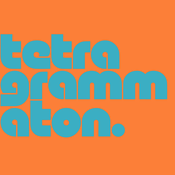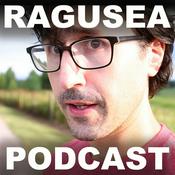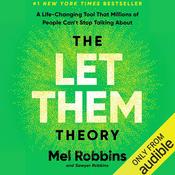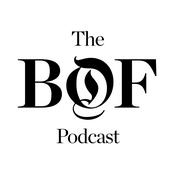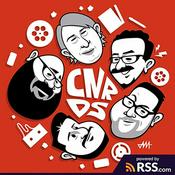1005 episodios
- Hosting the Academy Awards ceremony is a notoriously tricky gig, but Conan O’Brien nailed it in 2025, and he will return for this year’s event. Since leaving late-night television, in 2021, O’Brien has been busy: his hit podcast “Conan O’Brien Needs a Friend” commands perhaps a larger audience than he had on late night; he launched the travel series “Conan O’Brien Must Go”; and he’s played a therapist in the 2025 film “If I Had Legs I’d Kick You.” O’Brien talks with David Remnick about the things that have gone wrong at the Oscars; why he won’t get too “sentimental” about the gradual collapse of late night; and his shock at the deaths of Rob and Michele Reiner, who had been at O’Brien’s house on the night they were killed.
New episodes of The New Yorker Radio Hour drop every Tuesday and Friday. Join host David Remnick as he discusses the latest in politics, news, and current events in conversation with political leaders, newsmakers, innovators, New Yorker staff writers, authors, actors, and musicians. - Every year, ahead of Oscar night, the film critic Richard Brody joins the New Yorker Radio Hour to discuss his picks for the year’s best films. David Remnick sits down with Brody and the staff writer Alexandra Schwartz to discuss the movies that didn’t get enough credit, the ones that got too much, and the lesser-known gems among the year’s releases.
New episodes of The New Yorker Radio Hour drop every Tuesday and Friday. Join host David Remnick as he discusses the latest in politics, news, and current events in conversation with political leaders, newsmakers, innovators, New Yorker staff writers, authors, actors, and musicians. - In January, the Justice Department released over three million documents, including many redacted e-mails, related to Jeffrey Epstein. “Should we share the Julie Brown text with Alan [Dershowitz],” Epstein wrote in one note to a lawyer. “She is going to start trouble. Asking for victims etc.” Brown’s reporting on Epstein for the Miami Herald, and her revelations about the federal plea deal he received, had an enormous impact on public perception of Epstein and his ties to Trump. Brown joins David Remnick to discuss the latest tranche of redacted e-mails, which show, as she reported, that Trump knew about his friend’s crimes far earlier than he has admitted. Brown and Remnick also talk about Epstein’s relationship with Commerce Secretary Howard Lutnick, and why she does not believe that Epstein died by suicide.
New episodes of The New Yorker Radio Hour drop every Tuesday and Friday. Join host David Remnick as he discusses the latest in politics, news, and current events in conversation with political leaders, newsmakers, innovators, New Yorker staff writers, authors, actors, and musicians. - Jenin Younes rose to prominence on the right by defending medical professionals like Jay Bhattacharya who claimed that they were being censored over opposition to vaccination and masking mandates. Younes worked for the New Civil Liberties Alliance, a group described as libertarian, and appeared at events with the Federalist Society. As the political winds have shifted, she says that the Trump Administration’s attacks on free speech are worse than anything that she saw during the Biden Administration. Younes is currently the national legal director for the American-Arab Anti-Discrimination Committee. David Remnick speaks with her about her unlikely trajectory and about how her commitment to free speech—regardless of which side of the aisle the issue arises from—has left her in a uniquely lonely political position.
New episodes of The New Yorker Radio Hour drop every Tuesday and Friday. Join host David Remnick as he discusses the latest in politics, news, and current events in conversation with political leaders, newsmakers, innovators, New Yorker staff writers, authors, actors, and musicians. - Ben Shapiro, the host of his eponymous podcast and the co-founder of the conservative website the Daily Wire, has lambasted the left and the Democratic Party for decades. Recently, though, Shapiro has taken to criticizing some of the loudest voices in the MAGA universe, including Tucker Carlson and Megyn Kelly. The rift is over the acceptance and promulgation of conspiracy theories and, in particular, the normalization of antisemitism. Shapiro discusses the Epstein files and what they show—and do not show—about the powerful people connected to Jeffrey Epstein. The belief in conspiracies of the élite reflects “people’s desire to abdicate control over their own lives,” Shapiro tells David Remnick. They discuss Shapiro’s adherence to the conservative value of personal responsibility, and how he squares that with MAGA and its champions.
New episodes of The New Yorker Radio Hour drop every Tuesday and Friday. Join host David Remnick as he discusses the latest in politics, news, and current events in conversation with political leaders, newsmakers, innovators, New Yorker staff writers, authors, actors, and musicians.
Más podcasts de Arte
Podcasts a la moda de Arte
Acerca de The New Yorker Radio Hour
Profiles, storytelling and insightful conversations, hosted by David Remnick.
Sitio web del podcastEscucha The New Yorker Radio Hour, El Príncipe - Nicolás de Maquiavelo y muchos más podcasts de todo el mundo con la aplicación de radio.net

Descarga la app gratuita: radio.net
- Añadir radios y podcasts a favoritos
- Transmisión por Wi-Fi y Bluetooth
- Carplay & Android Auto compatible
- Muchas otras funciones de la app
Descarga la app gratuita: radio.net
- Añadir radios y podcasts a favoritos
- Transmisión por Wi-Fi y Bluetooth
- Carplay & Android Auto compatible
- Muchas otras funciones de la app


The New Yorker Radio Hour
Escanea el código,
Descarga la app,
Escucha.
Descarga la app,
Escucha.




